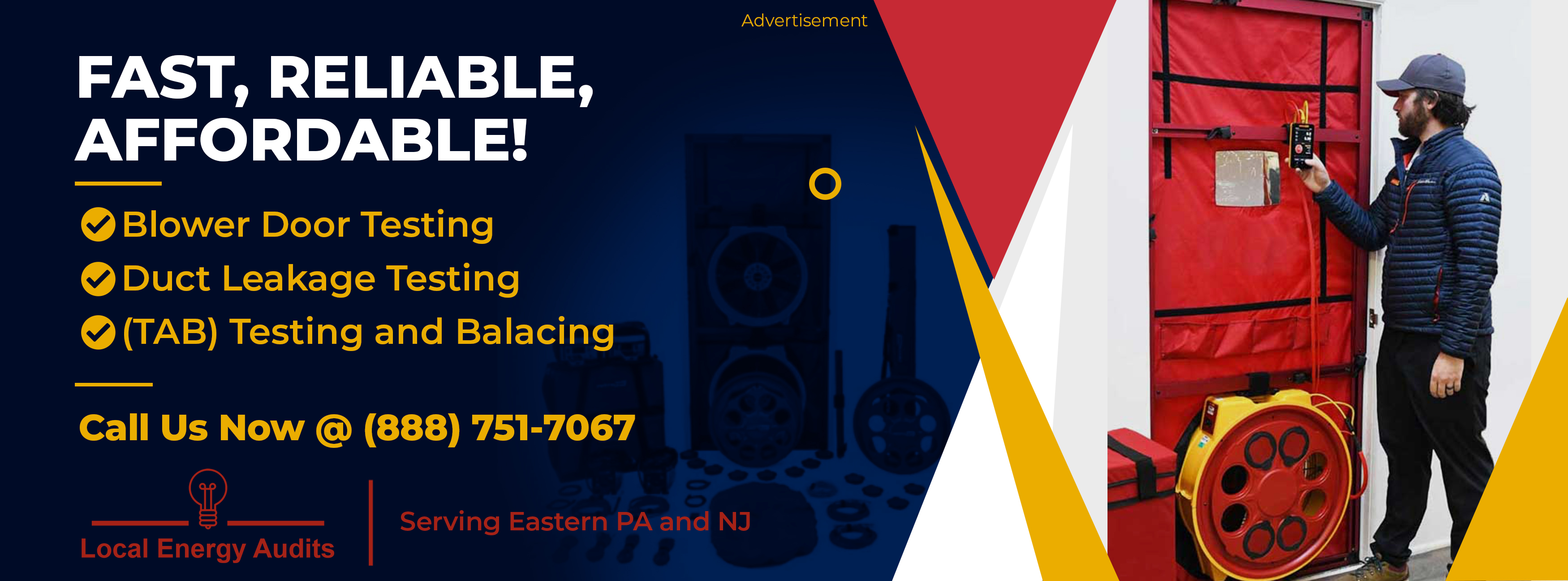

Both the 2015 and 2018 IRC/IECC require comprehensive air sealing to minimize heat loss and reduce the potential for moisture condensation issues.

The 2018 IRC/IECC requires a documented visual field inspection of all necessary air sealing details AND a post-construction air leakage test using a blower door to verify that the house has an acceptable leakage rate, as measured in Air Changes per Hour (ACH) at the test pressure of 50 pascals.
The New Jersey DCA Bulletin 19-2, however, includes an amendment that allows builders to select only one of the verification methods. Most builders choose to complete the visual inspection and forgo the blower door test.
The 2018 IECC specifies a maximum air leakage rate of 3 ACH in the NJ Climate Zones.
Air Changes per Hour:
The list of required air sealing details is too extensive to cover on this website. However, this document, available from the US DOE Building Energy Codes Program, is a good starting point: